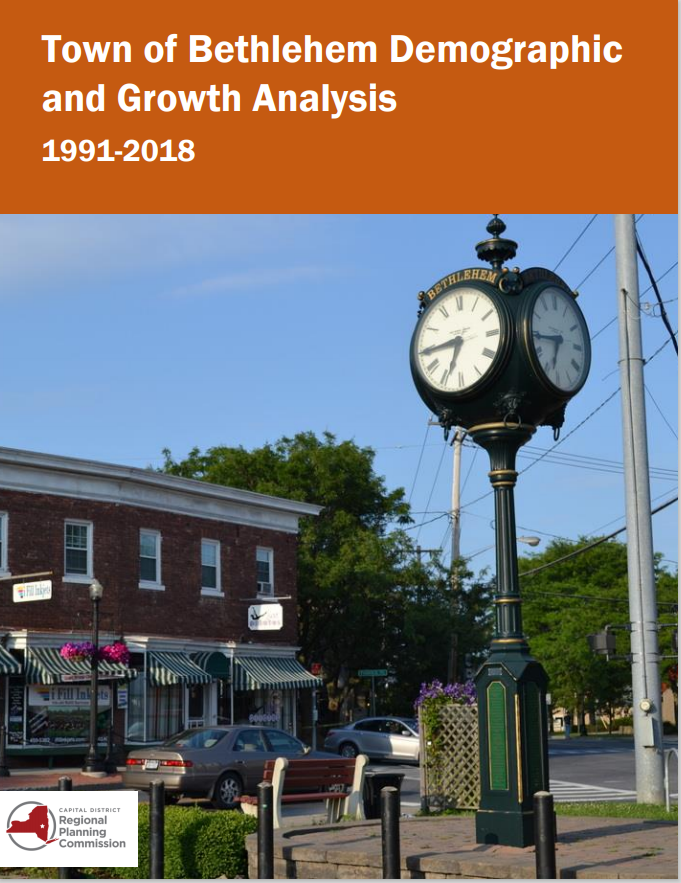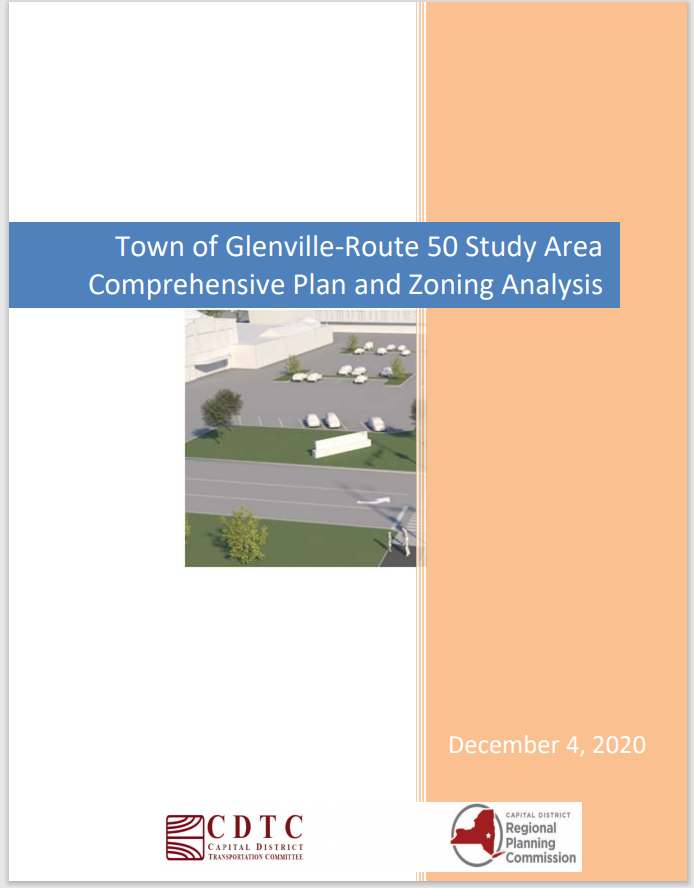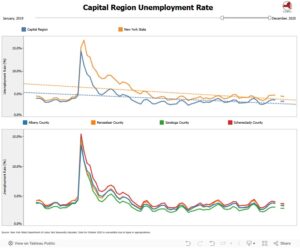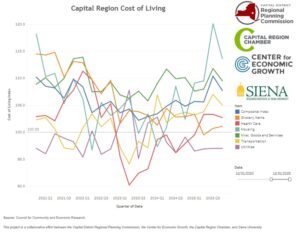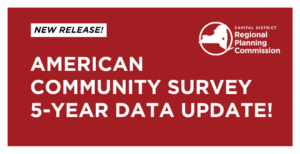Technical Assistance Program Overview
Applications for the 2021 Technical Assistance Program are being accepted now through December 1st, 2021! Since its inception in 2018, CDRPC and CDTC’s joint Technical Assistance Program has helped various communities across the region with planning projects and studies to help improve access to amenities, streamline the planning process, and more. The program was designed to assist projects that resonate with CDTC’s New Visions Plan, a long-range planning document that helps guide transportation planning and investments for the region. Eligible project categories include, but are not limited to, project support and development, data analysis and mapping, transportation planning analysis, and land use planning to apply. To better define the types of projects that have been worked on in the past, CDRPC will review in depth some of the past Technical Assistance projects.
Through 2018, 2019, and 2020, the Technical Assistance Program accepted and assisted with 14 projects and provided approximately $170,262 in value. This value provided is in staff time dedicated to working on the various projects as well as a 25% match by the communities.
Town of Bethlehem Demographic Growth Analysis 1991 – 2018 (2019)
In 2019, CDRPC worked with the Town of Bethlehem to perform a growth analysis. As the Town of Bethlehem was beginning the process of updating its 2005 Comprehensive Plan, it wanted to first understand the recent history of development in the Town and to understand how the population had changed over the past 30+ years. The Town Planning Department, through the Technical Assistance Program, sough the assistance of CDRPC to evaluate demographic growth in the Town since the 1980s. Specifically, CDRPC broke down growth for several categories between 1991 – 2004 and 2005 – 2018. CDRPC also compared the Bethlehem’s growth to peer communities from throughout the region that the Town selected as similar communities based on size and other factors.
The growth analysis showed that the rate of housing development in Bethlehem had slowed from the high rate seen in the 90s and early 2000s. With 2,101 units developed between 1991 and 2004, the development of just 733 units between 2005 and 2018 was a much slower rate of development. The analysis also showed that Bethlehem’s housing units are dominated by single-family detached units at 74.4% of the Town’s housing units. Utilizing these insights as well as other data insights from the report, the Town had all of the tools necessary to begin the Comprehensive Plan update process.
Town of Glenville Route 50 Study Area Comprehensive Plan and Zoning Analysis (2020)
In 2020, the Town of Glenville applied to the Technical Assistance Program to receive assistance in performing an analysis of the Route 50 corridor in the Town. Specifically, the analysis looked at the Town’s Zoning regulations and Comprehensive Plan for a portion of the Route 50 corridor as they pertained to vehicles, pedestrians, transit, and bicycles in an effort to apply a Complete Streets overhaul to the corridor. Complete Streets is a policy and design guideline that upgrades older road corridors to accommodate all forms of travel as many older streets are designed with only cars in mind. By analyzing the zoning of the area as well as the Town’s Comprehensive Plan, CDTC and CDRPC were able to provide recommendations for how to best apply Complete Streets concepts to the area. A presentation of findings was made to the Town’s Code Review Committee.
After undertaking an analysis of the zoning regulations, Comprehensive Plan, prior plans and design guides, and the needs of the area, CDTC and CDRPC recommended the continuation of the Freemans Bridge Road side path, adding sidewalks in front of commercial areas, street scaping and increased lighting, and adding additional pedestrian crosswalks to ensure that people can safely walk around the area. Further recommendations were also made based on improved access management and safety for transit, vehicles, pedestrians, and pedestrians. CDRPC and CDTC also made recommendations for improvements in the zoning regulations that will better compliment Complete Streets upgrades and for stormwater management.
Village of Menands Food Access Study (2019)
In the process of updating their Comprehensive Plan, the Village of Menands identified food access as a specific problem and formed a special committee to assess the issue. During the public engagement stages of the Comprehensive Plan update, residents frequently cited food access as a major issue after back-to-back closings of two major grocery stores. To help the committee, the Village applied to the Technical Assistance Program to have CDRPC undertake a food access study in the Village and provide data and analysis of the situation.
After assessing the situation, CDRPC came up with two strategies the Village can utilize to increase Food Access. The first strategy is to improve access to existing full-service grocery options outside of the Village. This strategy focused on highlighting and improving transit and other transportation options to reach already established grocery options outside of the Village. The second strategy entailed collaborating with local resources to increase food access inside the Village. This strategy highlighted ideas such as hosting a farmer’s market, establishing community gardens, and more. The study also provided suggestions for implementation of these ideas with guidance for oversight and leadership of the strategies.
To learn more about past Technical Assistance Program projects, check out our Technical Assistance page here.
To learn more about the program or to apply, check out CDTC’s website here.
